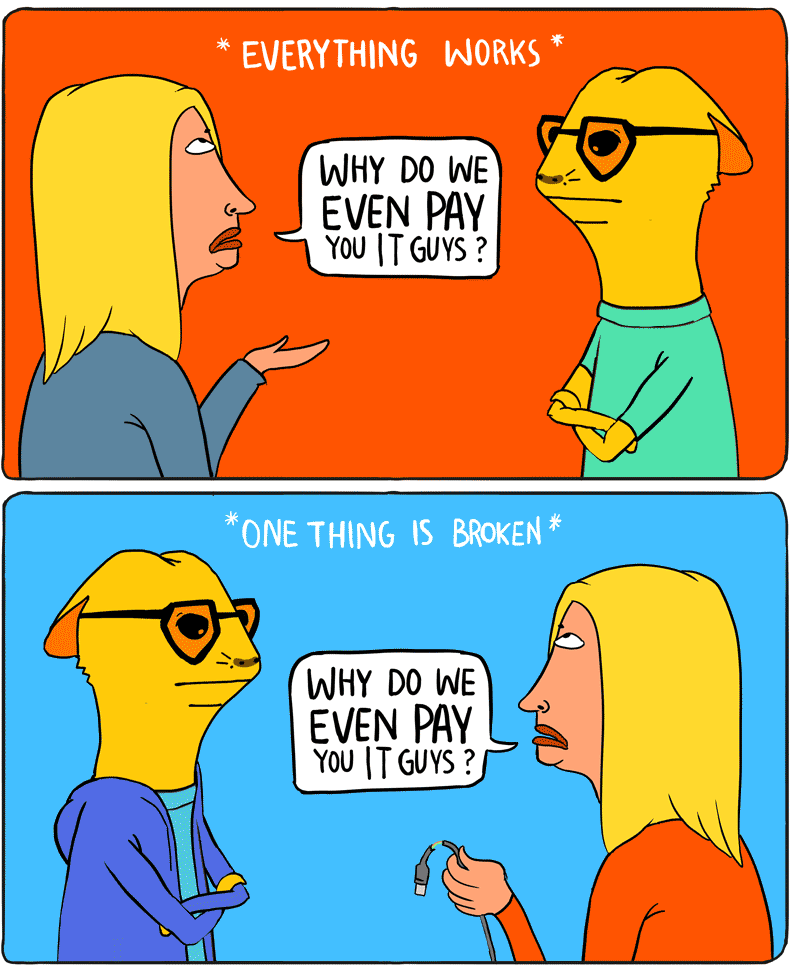Managers should stay out of IT
I now had the pleasure to enjoy working in teams of various sizes. From literally 5-people-startups to thousands-of-employees-corporations I dare say I have seen quite a bit of variance for someone my age. One unfortunate constant that has been the source of headaches in all of them, were managers.
Managers have one simple task and one more complex: make sure we turn a profit and make sure that everything works. Unfortunately, these goals a diametrically opposed to one another. Making sure that everything works, while generating the money in the first place1, also costs money and that’s where priorities come in.

Every manager in IT has to weigh costs and benefits; That’s literally their job. Of course there are things that a manager has to say “no” to, features to reject, money to withhold. The important thing while doing that, is to listen to the expert™. Does your head-admin tell you that some disks need replacement? Better order those disks. If in doubt, get a second opinion on whether it’s really necessary, or if it will bring a noticeable benefit.
An important thing to realise that it’s not only monetary capital you’re managing: you’re also managing “human capital”2. Remember that it’s not you generating the value, it’s the guys you are supposed to be managing, or maybe even someone down the line. Sure, IT-people really like to go wild “let’s migrate to a graph DB”, “we could shave dozens of microseconds of this processing”, “look at this architecture!”, we’ve all heard it, we’ve all done it. It’s your job to direct their enthusiasm and creativity, so they can optimally create the value you can submit a report on while they stay motivated and happy.
Making your team happy can be directly profitable like when they try to come up with new products or improve existing ones, but at times their endeavours might be unprofitable but educational. This also has value. It’s not as easy as refilling the cookie-jar on a regular basis or supply free coffee3.
The magic words here are “employee retention”. If you don’t keep them happy, they will look for someone else, who will. This means you have to hire, onboard, and supply a new employee instead of keeping one who’s already familiar with your environment.
How do you explain this to your manager? Dunno, ask a manager that understood this.





